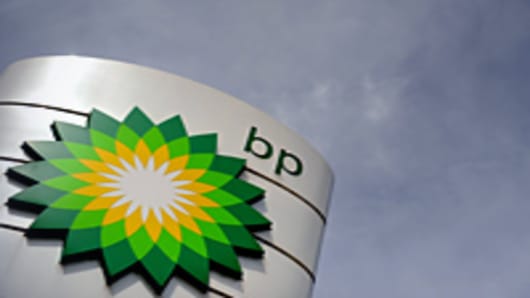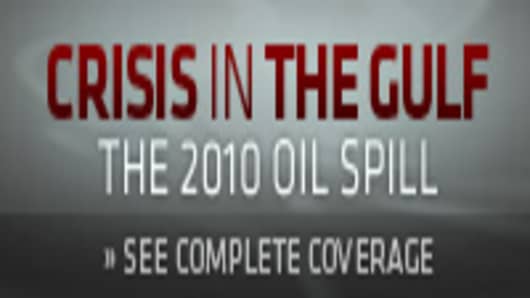Reflecting BP’s urgent need for cash, Apache said it would advance BP $5 billion of the purchase price on July 30, even though the transaction is unlikely to close for several months as regulators in various countries review it.
But the deal is not just about the money. Although BP, based in London, could have raised the funds by selling valuable deepwater assets, it decided to dispose of onshore assets instead.
Analysts say the choice shows that BP is committed to deepwater drilling, despite the prospect of increased global regulation of such wells and an effort in Congress to bar the company from receiving new drilling permits in the gulf.
“The Gulf of Mexico, West Africa, Brazil, Egypt — these offshore areas are where you have significant deposits, and this is what BP will continue to go after,” said Bruce Lanni, an energy portfolio strategist at Nollenberger Capital Partners. “BP has an opportunity to become a little leaner and meaner by selling some of its noncore assets on the periphery and emphasize the deepwater production.”
On Monday, as optimism grew that the temporary cap put on the Macondo well was holding up against the pressure of the oil below, BP announced an expansion of its offshore portfolio. The companysigned a deal with Egypt’s government to develop new hydrocarbon deposits in the Mediterranean Sea. BP’s chief executive, Tony Hayward, declared, “This agreement unlocks a new phase in realizing the huge potential of the Nile Delta basin.”
News of the Apache deal came shortly after Thad W. Allen, the retired Coast Guard admiral in charge of the response to the gulf spill, said Tuesday afternoon that the government would give BP another 24 hours to test the cap on the Macondo well. The cap, which has been fully closed since Thursday, will remain shut while BP and government officials weighed whether to kill the well permanently by pumping heavy mud into it.
In their quest for new supplies, oil companies have gone after oil and gas reserves in ever-deeper waters since the 1990s. But no company has invested as much in deepwater exploration over the last decade as BP, which has often led the way in the industry’s push into the deepest reaches of the oceans.
Deepwater production, traditionally defined as wells in more than 1,000 feet of water, now accounts for about a third of BP’s 2.5 million barrels of daily oil output — surpassing Royal Dutch Shell or Exxon Mobil .
BP is the top producer in the Gulf of Mexico, with a daily output of 400,000 barrels in 2009. The company operates the world’s biggest offshore platform, Thunder Horse, in the gulf. BP is also one of the top investors in Angola, which has turned into the fastest-growing source of oil in Africa thanks to its offshore deposits. Last year, the company made three discoveries in Angola’s ultradeepwater Block 31. In addition, BP is also looking for oil off the coasts of Libya and Egypt, and it is the largest foreign investor in Azerbaijan, where it operates two major fields in the Caspian Sea, Azeri-Chirag-Gunashli and Shah Deniz.
With most of the big onshore fields long since discovered or controlled by national governments, major oil companies view the world’s oceans as their best opportunity to find vast pools of untapped oil and gas.
But for BP, the increasing dependence on deepwater drilling poses its own risks.
Deepwater projects are challenging under the best of circumstances — much of the work must be done using remote-controlled robotic vehicles, and the intense pressures and temperatures of the ocean depths make everything more difficult.
The Deepwater Horizon accident has gravely damaged BP’s reputation. Even if the company can contain the political damage, its growth will be stunted by its need to save cash to pay for the spill. BP has already announced it would not pay a dividend this year and would reduce its capital spending program.



